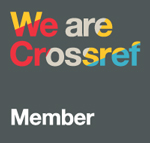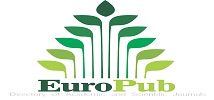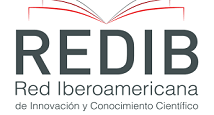Psychology, Education and Philosophy: an epistemic correlation
DOI:
https://doi.org/10.51440/unsch.revistaeducacion.2025.25.529Keywords:
Education and development, interdisciplinary approach, philosophy, social pedagogy, PsychologyAbstract
The theoretical and epistemological relationship between psychology, philosophy and education is interdisciplinary and heterogeneous. Although each discipline has its elemental projective framework, they intersect and influence the knowledge process. For this reason, the objective of the essay is to reflect that cognitive evaluation among the branches of knowledge framed in the psychological, philosophical and socio-pedagogical field is significant to glimpse the socio-human condition in the pedagogical process of teaching/learning. The methodology is qualitative, with an exploratory and analytical-critical nature, based on a theoretical review of epistemic aspects of learning from the scientific study of behavior, psychic processes, knowledge, the surrounding reality and socio-educational evolution in society. Among the theoretical findings is a feasible cognitive correspondence between psychology, philosophy and education to conceive the complexity of human learning. Thus, by recognizing the theoretical and systematic connection of these knowledge disciplines, constructivist educational practices can be outlined that lead to a theoretical understanding of the nature and limits of human knowledge. It is concluded that education requires redefining the pedagogical process to direct it to a terrain that encourages criticism, reflection and emancipation. These three elements (criticality, reflexivity and autonomy) are possible from the relational, theoretical and pragmatic symbiosis of psychology, philosophy and education.
Downloads
References
Aguilar, F. (2020). Contribuciones de la filosofía para la consolidación de la filosofía de la educación. Conrado, 16(74), 99-111. http://scielo.sld.cu/scielo.php?script=sci_arttext&pid=S1990-86442020000300099
Alvargonzález, D. (2020). Filosofía, ¿para qué? Tópicos (México), (59), 429-442. https://doi.org/10.21555/top.v0i59.1146
Aponte-Jaramillo, E., y Vásquez-Rizo, F. E. (2020). Educación y gestión social del conocimiento para la construcción de capital social. Educação & Sociedade, 41, e226119. https://doi.org/10.1590/ES.226119
Arias, M., y Navarro, M. (2017). Epistemología, Ciencia y Educación Científica: premisas, cuestionamientos y reflexiones para pensar la cultura científica. Revista actualidades investigativas en educación, 17(3), 1-20. http://dx.doi.org/10.15517/aie.v17i3.29878
Bandura, A. (1987). Teoría del aprendizaje social. Espasa Libros.
Camacho, L., y Morales, H. (2020). Filosofía de la Educación y pedagogía de la enseñanza en la formación del profesorado. Estudio de caso, percepción del estudiantado. Revista Educación, 44(1), 1-30. https://www.redalyc.org/journal/440/44060092006/html/
Dewey, J. (2020). Democracia y educación. Ediciones Morata, S.L.
Fuentes, A, y Collado, J. (2019). Fundamentos epistemológicos transdisciplinares de educación y neurociencia. Sophia, Colección de Filosofía de la Educación, (26), 83-113. https://doi.org/10.17163/soph.n26.2019.02
Freire, P. (2023). Pedagogía del oprimido. Editorial Siglo XXI.
Garzón, J., Rojas, D., Cañizares, L., Culqui, K. (2019). El impacto de la psicología en el ámbito educativo. Revista científica mundo de la investigación y el conocimiento, 3(2), 543-565. http://www.recimundo.com/index.php/es/article/view/463
López, L., (2014). Contribución de la filosofía para la constitución de la psicología como ciencia. Sophia, Colección de Filosofía de la Educación, (16), 171-188. https://www.redalyc.org/pdf/4418/441846097008.pdf
Martí, Y., Montero, B., y Sánchez, K. (2018). La función social de la educación: referentes teóricos actuales. Conrado, 14(63), 259-267. http://scielo.sld.cu/scielo.php?script=sci_arttext&pid=S1990-86442018000300259
Paz, S., y Peña, B. (2021). Psicología de la Educación. Universidad Politécnica Salesiana. http://dspace.ups.edu.ec/handle/123456789/20369
Piaget J. (2019). Psicología y pedagogía. Editorial Siglo XXI.
Vygotsky, L. (1978). Mind in Society: The Development of Higher Psychological Processes. Harvard University Press
Downloads
Published
How to Cite
License
Copyright (c) 2025 Pablo Emilio Cruz Picón

This work is licensed under a Creative Commons Attribution-NonCommercial 4.0 International License.





















